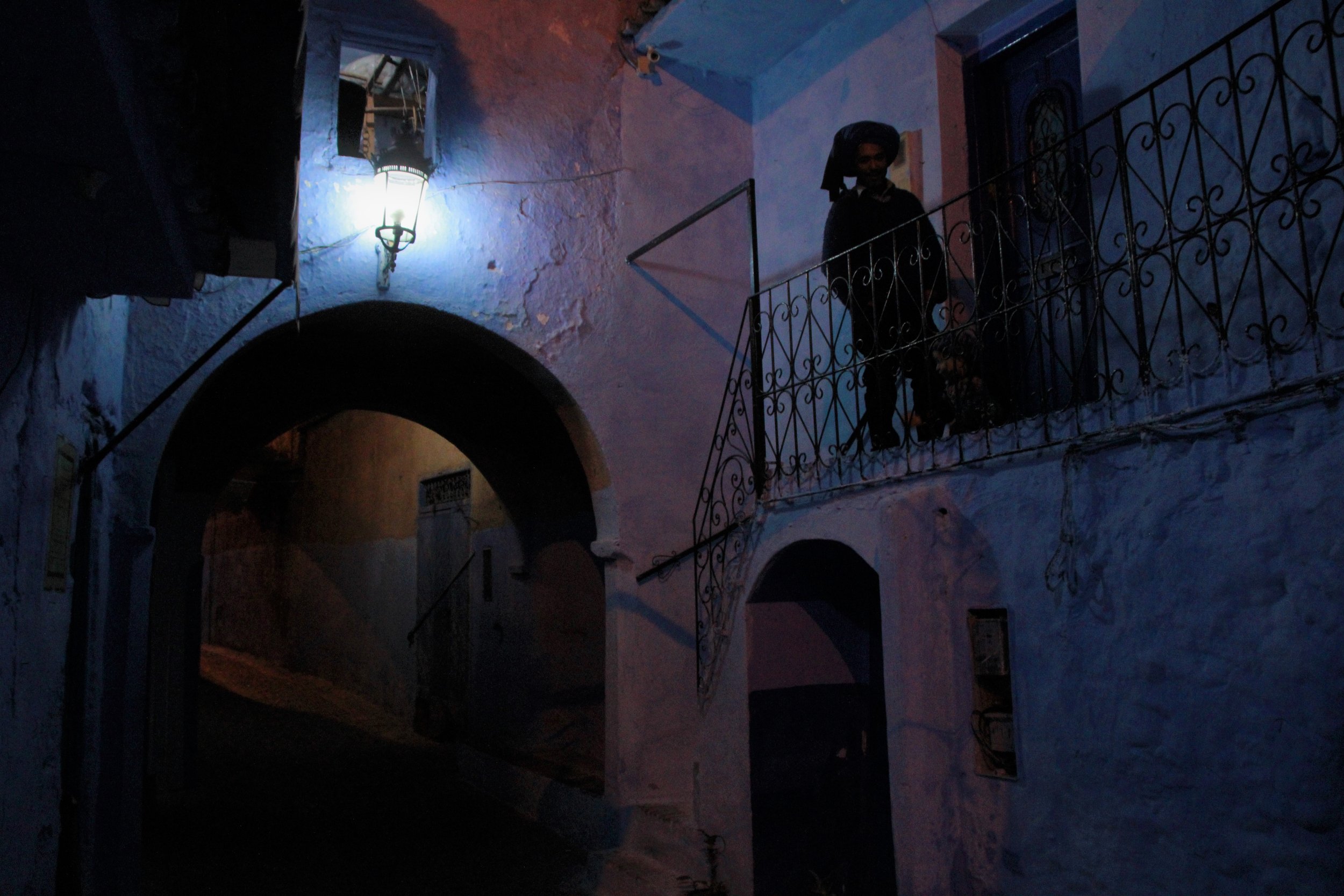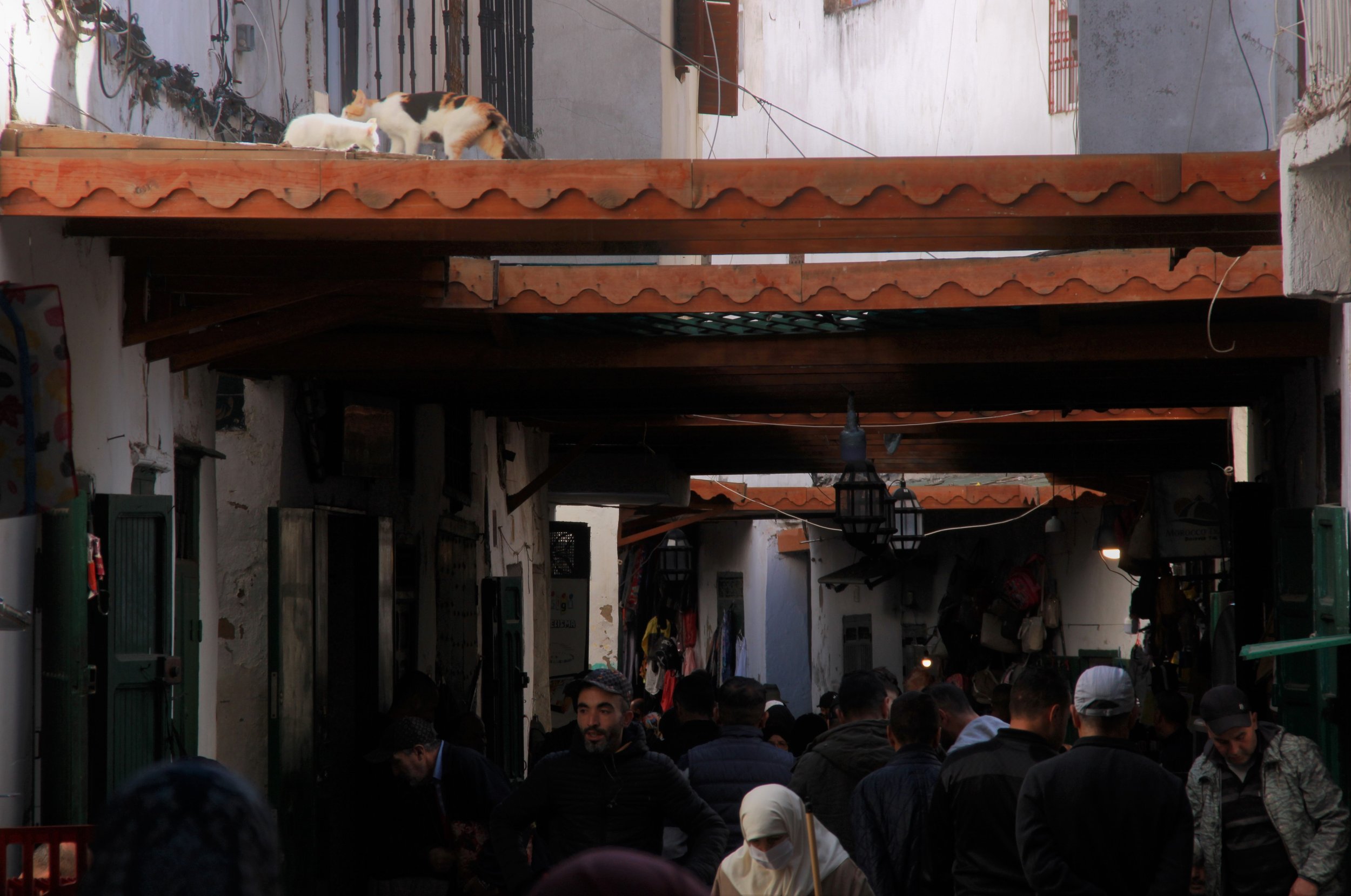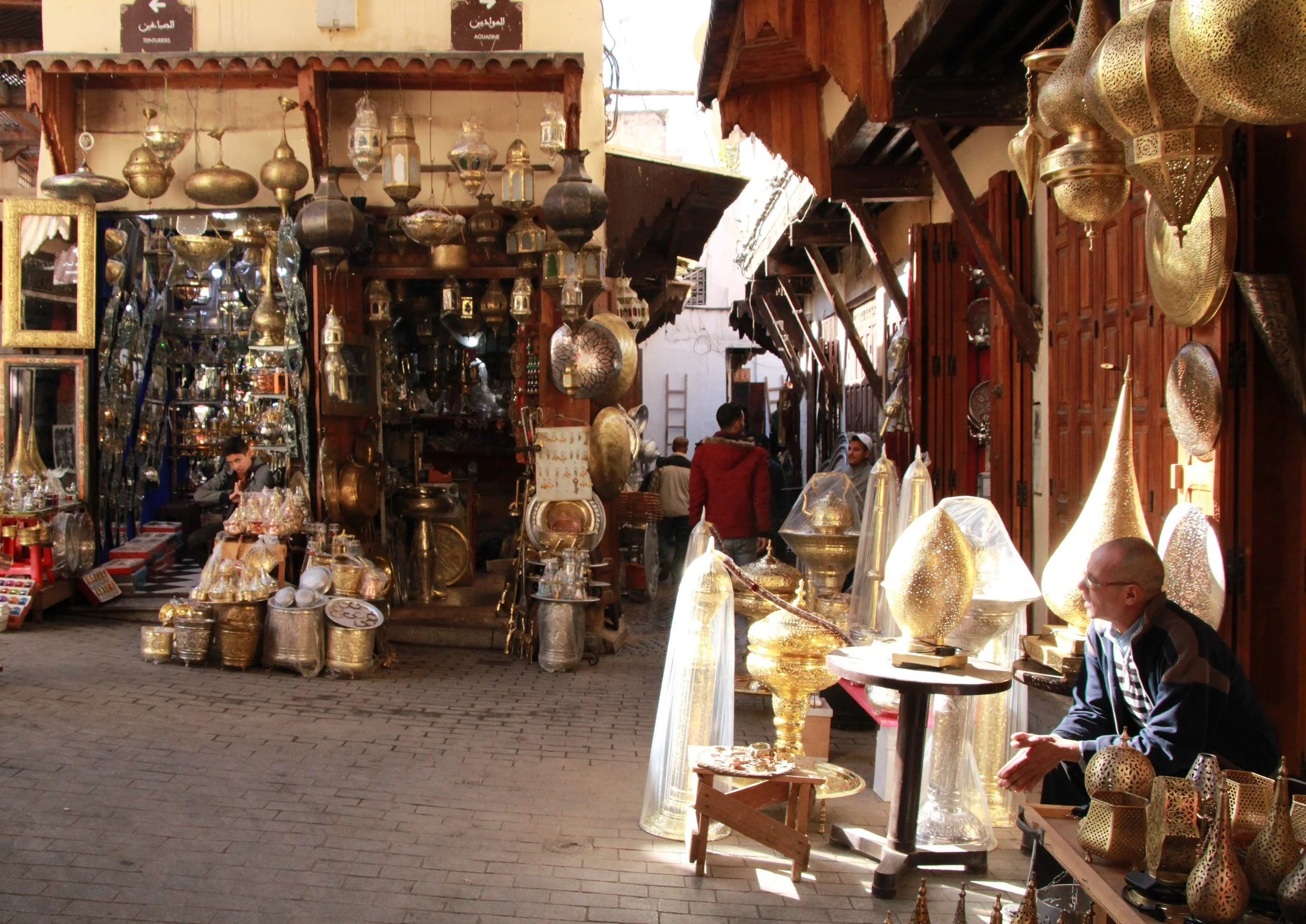Amid the souks of Morocco, and for all the Islamic world for that matter, one’s normal lie-dar is rarely enough. The objective of making a sale: of a carpet, of jewelry, a headscarf, becomes so elaborate as to appear like a dance. The dance is woven to such a degree that the continual questioning of the sincerity of what one is told spreads, rather like an unrolled carpet, across the entire interaction. Questions like, “is this really handmade” can quickly spread to, “is this guy even a Berber,” to “was that really his family,” to “is this entire souk in league with each other?”
PICTURED: Souks are busy places. It’s easy to look only down and sideways without noticing its rooftop life as well.
I found the souks fascinating for this reason and many others. In China I felt I was in a 1 megapixel per square meter world that was totally normal, and in a 10 megapixel per square meter world in which everything was different. This is how I felt inside the medina and the souks of Tangier, Fes, Chefchaouen, Tetouan, and Rissani. I’m certain I will feel the same when I reach Meknes. One of the things it makes one do is apply, un-apply, and endure the outside application of, many different versions of thought relating to people and products. For example, every merchant that is trying to sell you something will begin to place many criteria on the quality and value of the item in question until you yourself begin placing the particulars of an item in considerations higher than you’d ever do at home. Buying herbs from a shop in the city becomes sacrilegious after the local herbalist in the desert tells you all herbs grown in the desert are superior to those grown elsewhere. For carpets it becomes a repeatedly large body of questions including, is this made by Berbers… by hand… with traditional methods… with traditional materials… as if anyone has ever bought a carpet while asking themselves if the South East Asian textile factory worker did any of these things. I had Tuareg man tell me that a fabric was “pure,” that’s the level of griftsmanship applied to the often-feeble defenses of the westerner.
PICTURED: Sunlight glows in the newly-hammered panels and pots, trays and tables in the metalworkers souk, Fes.
This is all fun. As everyone knows, I’m a Libertarian, and as far as I’m concerned, a price agreed upon by both parties is good news for the world, and no one should be shamed for how much, or how little, they value the products they buy. When I sold overpriced cheese I would often say that “there’s only so much time and money we can devote to every luxury food item, and everyone has their favorite, whether that’s wine, coffee, or cheese”. Unlike many in our society going as far back as the ancient Israelites, I do not hold those who bargain for a living in contempt. The work of the “middle-man,” who is often detested as a parasite, is actually invaluable, and if there should be anyone reading who disagrees with me, I invite them to spend 3 weeks in the souks. The Berber or Tuareg who makes the carpets sold to the merchants speaks a different language, and lives in lands far beyond the reach of most supply lines. He brings the goods to a merchant, who may supply them to another, who brings them to the cities. There their value lying folded on a shelf rather than displayed in a souk would generate no income or mystique by anyone, and the weaving of carpets would be reduced to a simple utilitarian process merely for warming the desert sand under tents.
PICTURED: Inside the haunt of a Berber trader: a real Berber trader, for I can say that while the souks conceal the truth of many of these characters from us forever, the “Marche Des Les Caravanes” in Rissani’s, is run by the truest of camel traders.
However I must say that as I began to purchase goods from this great merchant culture, it naturally made me question my own consumer values. Furthermore, as I began to unravel the riddles of my own desires, it made me question parts of my life, and of opinions I’ve long applied onto the world. After one Tuareg explained in detail the meaning of every kind of symbol on a Tuareg carpet, and how some were embroidered, some were woven, and some were knotted, some with cactus, some with wool, and some with cotton, I suddenly became starkly grateful for industrial textile carpets, with their abilities of withstanding abuse and changing little, of their suitability for bare-skin and yoga, of their unimportance in the room, and their reproducibility when faced with the clawing games of friendly felines. Do I buy the finest brands of olive oil every month in Italy, and do I go down and ensure I am in Puglia when I do it? No. I bought Esselunga-brand olive oil for almost a whole year. Personally, I was more drawn to the hammered copper, brass, bronze, and silver metalwork from the Fes metalsmiths, and if someone wanted to lay out exactly why they were superior than mass-produced ones, I should like to hear them. The souks are winding, labyrinthine places, but so are the cultures and the hearts of the people that work there. If you’re aware enough they are a door which is always closed, even if it’s open everyday.






